- Your cart is empty
- Continue Shopping
Product Overview
Enclex 60 Injection is an anticoagulant medication that helps prevent and manage blood clots. It works by stopping existing clots from enlarging and preventing new clots from forming. This injection is particularly useful for conditions such as deep vein thrombosis (DVT) and pulmonary embolism.
The injection is administered subcutaneously by a healthcare professional and should not be injected into a muscle. The dosage and duration depend on your medical condition, treatment goal, age, and weight. Regular use is important to prevent complications, even if you do not notice symptoms. While using this medicine, avoid activities that increase the risk of bleeding or injury.
Uses
Prevention and treatment of blood clots
Deep vein thrombosis (DVT)
Pulmonary embolism
Acute coronary syndrome
Benefits
Enclex 60 Injection works by inhibiting specific proteins involved in the blood clotting process. This ensures smooth blood flow and reduces the risk of damage caused by clots in the lungs, brain, heart, or other blood vessels. While it does not dissolve existing clots, it prevents them from growing, allowing the body to naturally break them down. It is also used to prevent clots after surgeries such as hip or knee replacements.
Side Effects
Most side effects are mild and resolve as your body adjusts to the medicine. Consult your doctor if they persist.
Common side effects include:
Low platelet count
Anemia (low red blood cells)
Bleeding
Headache
Elevated liver enzymes
Fever
Pain at the injection site
Breathing difficulties
Swelling (edema)
Diarrhea
Severe headache or stomach pain may indicate internal bleeding and should be addressed immediately.
How to Use
This injection must be administered by a doctor or nurse. Self-administration is not recommended.
How It Works
Enclex 60 Injection is an anticoagulant that inactivates certain blood-clotting proteins. This reduces the formation of clots and helps prevent blockages in blood vessels.
Precautions
Alcohol: Consult your doctor before consuming alcohol.
Pregnancy: Generally considered safe when prescribed; limited human data available.
Breastfeeding: Likely safe; small amounts may pass into breast milk without expected harm.
Driving: Usually does not affect driving ability.
Kidney: Use with caution in patients with kidney disease; dose adjustments may be necessary.
Liver: Limited data available; consult your doctor before use in patients with liver conditions.




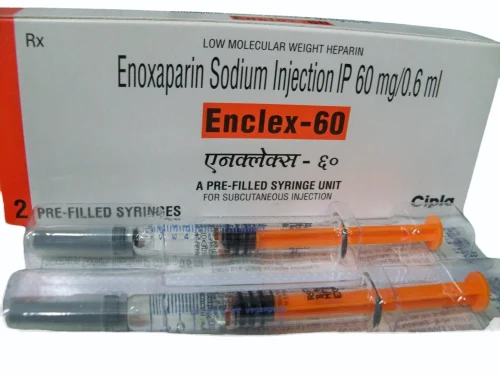
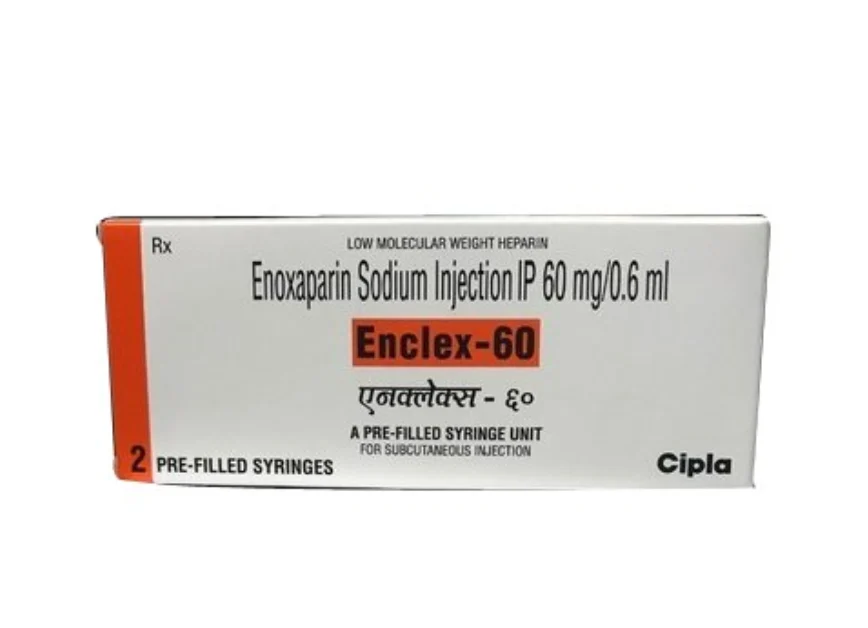
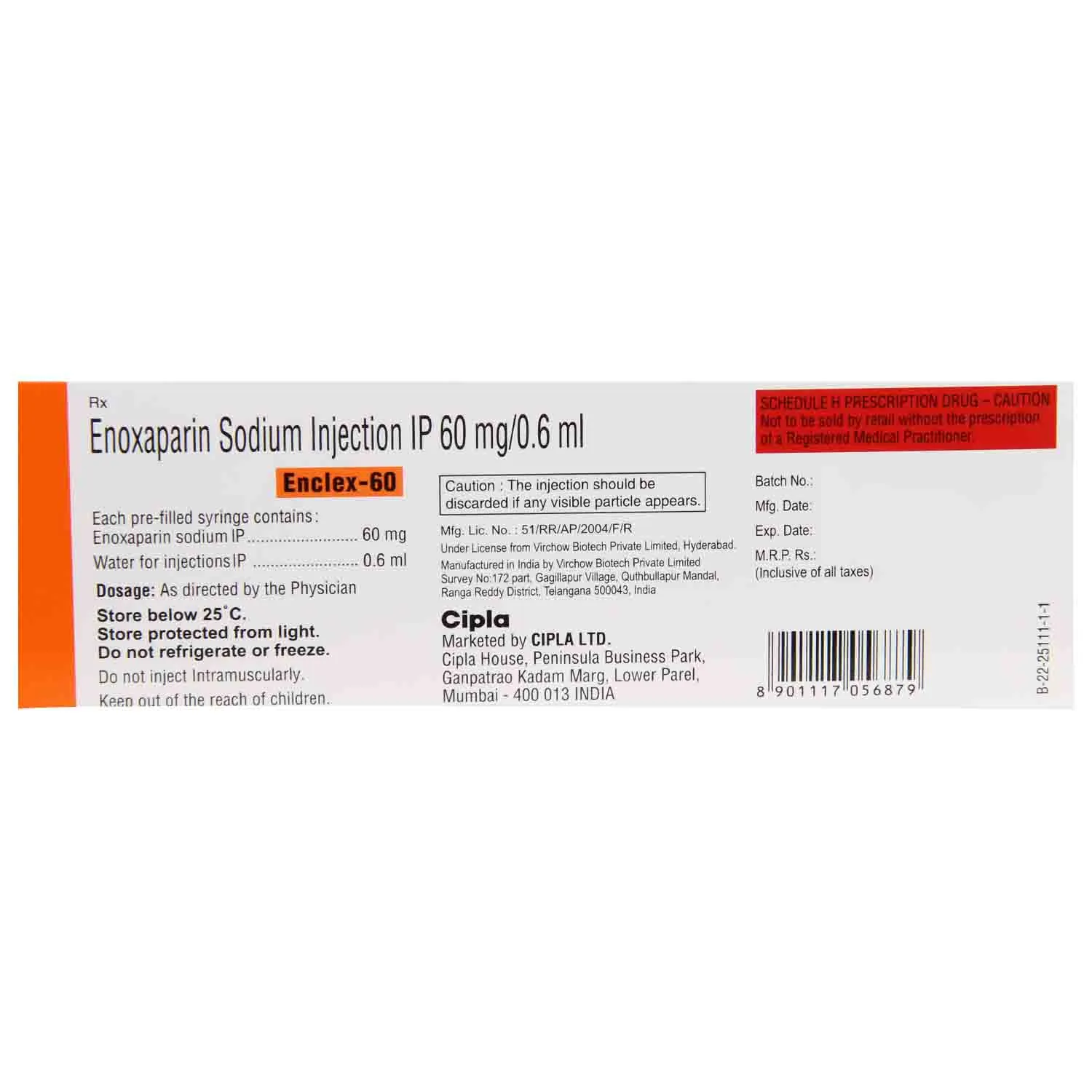

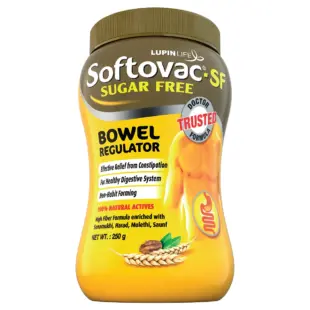
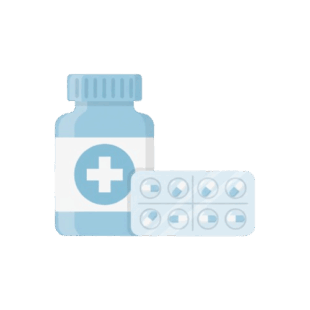
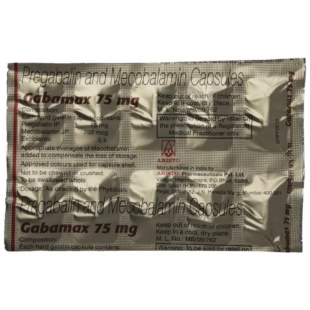



Reviews
There are no reviews yet.